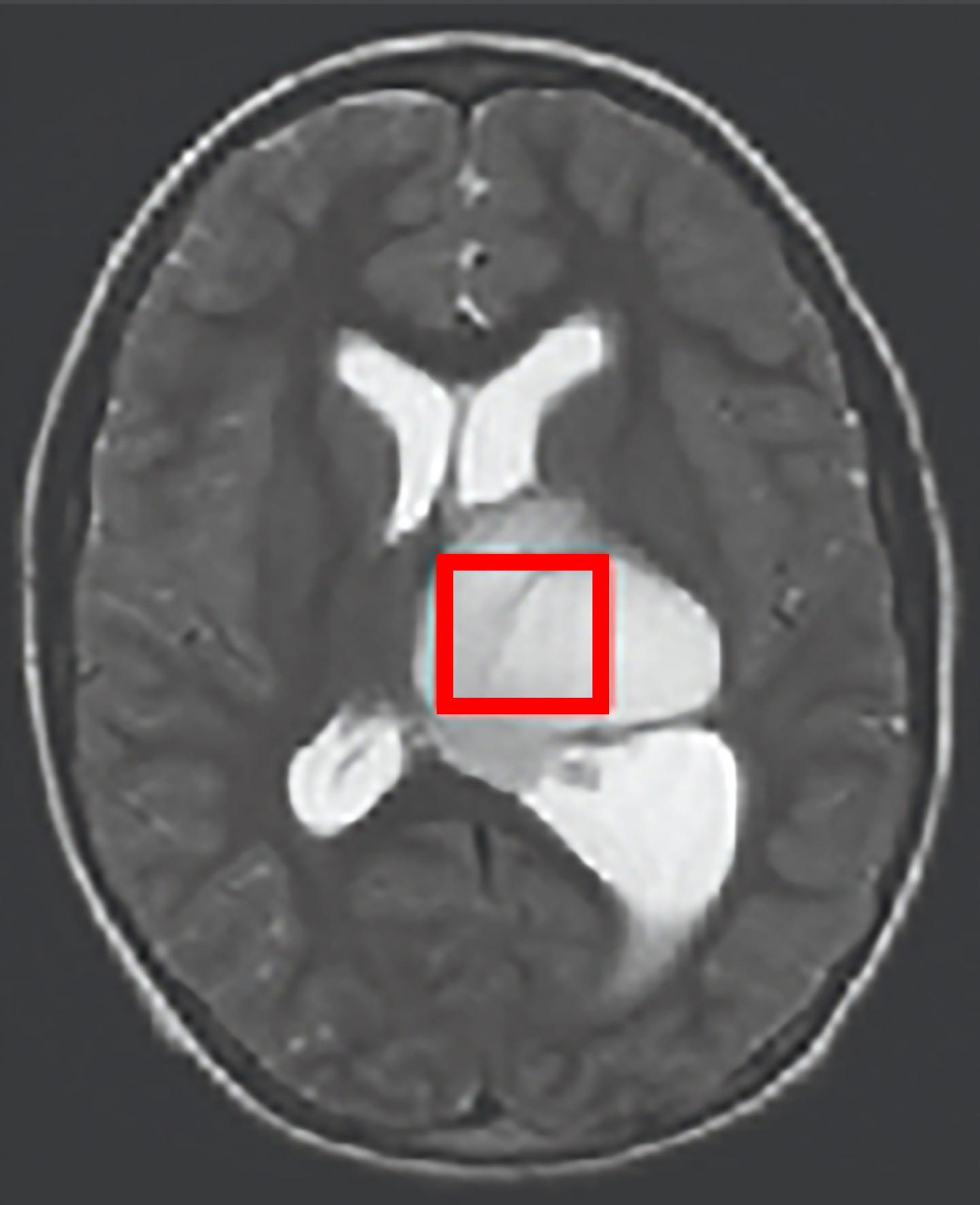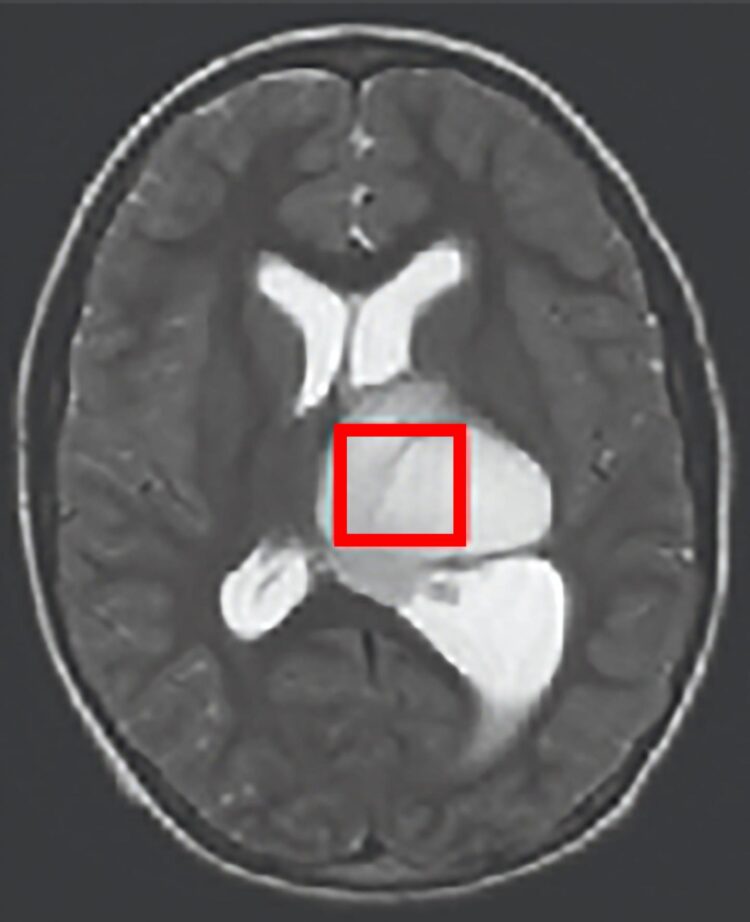NIH funded pre-clinical study highlights intricate links between brain tumors and cancer cell metabolism

Credit: Courtesy of Venneti lab, University of Michigan Medical School, Ann Arbor.
Every year, 150 to 300 children in the United States are diagnosed with diffuse intrinsic pontine gliomas (DIPGs), aggressive and lethal tumors that grow deep inside the brain, for which there are no cures. In a study funded by the National Institutes of Health, researchers showed that experimental drugs designed to lower the body’s natural production of alpha-ketoglutarate extended the lives of mice harboring DIPG tumors by slowing the growth of the cancer cells. Interestingly, they also found that artificially raising alpha-ketoglutarate levels with DIPG-causing genes may slow the growth of other brain tumors. The results, published in Cancer Cell, were part of a nationwide study that explored the cyclical role that cancer cell metabolism may play in regulating brain tumor genes.
Led by senior author Sriram Venneti, M.D., Ph.D., and a team of researchers at the University of Michigan Medical School in Ann Arbor, the researchers primarily studied H3K27M tumors, DIPGs linked to mutations in a gene, called histone 3. Histones are proteins cells spool chromosomes around. This helps cells cram lengthy chromosomes into tiny nuclei and control gene activity. Any genes that are buried in the spools cannot be read and are thus turned off. Cells can “epigenetically” fine tune spooling by using a process known as methylation to chemically tag histones. For years scientists knew that cancer genes often alter the metabolism of tumors. In this study, the researchers not only found that this may be true for patients with H3K27M tumors but also that these alterations in metabolism may be part of a feedback loop involving alpha-ketoglutarate (α-KG), that epigenetically keeps these and other brain tumors in a cancerous state.
Brain scans of H3K27M patients showed that they had higher levels of certain precursor metabolites – namely glucose and glutamine – than patients with deep brain tumors who do not carry the H3K27M mutations. Then through a series of detailed experiments on mice and cells in petri dishes, the researchers found that H3K27M mutations induced the cancer cells to produce high levels of α-KG and this, in turn, spurred more growth. Further results suggested that this happened because α-KG prevented methylation of histones and thus epigenetically kept genes that are vital for cancer cells exposed and active. For instance, lowering α-KG levels with experimental drugs increased histone methylation, slowed cancer cell growth, and helped mice harboring the DIPG tumors live longer. In contrast, they saw surprisingly opposite results in lower grade tumors associated with mutations in isocitrate dehydrogenase genes (IDH1), which naturally produce lower levels of α-KG. Introducing H3K237M genes into IDH1 tumors slowed growth by raising alpha-ketoglutarate levels which, in turn, increased methylation and turned off cancer-sustaining genes. The researchers concluded that understanding the intricate details behind these feedback loops may help researchers devise effective ways to treat DIPG and other brain tumors.
###
Article:
Chung, C. et al. Integrated Metabolic and Epigenomic Reprogramming by H3K27M Mutations in Diffuse Intrinsic Pontine Glioma, August 13, 2020, Cancer Cell; DOI: 10.1016/j.ccell.2020.07.008
This study was supported by the NIH (NS110572, NS099427), the Chad Tough Foundation, Mathew Larson Foundation, St. Baldrick’s Foundation, Claire McKenna Foundation, Alex’s Lemonade Stand Foundation for Childhood Cancer, Storm the Heavens Foundation, a joint Chad Tough Foundation and Michael Mosier Defeat DIPG Foundation fellowship award, the Sidney Kimmel Foundation, Doris Duke Foundation, Sontag Foundation, the Toyota Research Institute, Rudi Schulte Research Institute, and the Ian’s Friends Foundation.
For more information:
medlineplus.gov/braintumors.html
http://www.
http://www.
http://www.
http://www.
NINDS is the nation’s leading funder of research on the brain and nervous system. The mission of NINDS is to seek fundamental knowledge about the brain and nervous system and to use that knowledge to reduce the burden of neurological disease.
About the National Institutes of Health (NIH): NIH, the nation’s medical research agency, includes 27 Institutes and Centers and is a component of the U.S. Department of Health and Human Services. NIH is the primary federal agency conducting and supporting basic, clinical, and translational medical research, and is investigating the causes, treatments, and cures for both common and rare diseases. For more information about NIH and its programs, visit http://www.
Media Contact
Christopher G. Thomas
[email protected]
Original Source
https:/
Related Journal Article
http://dx.





